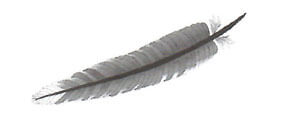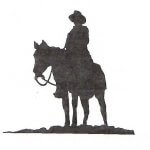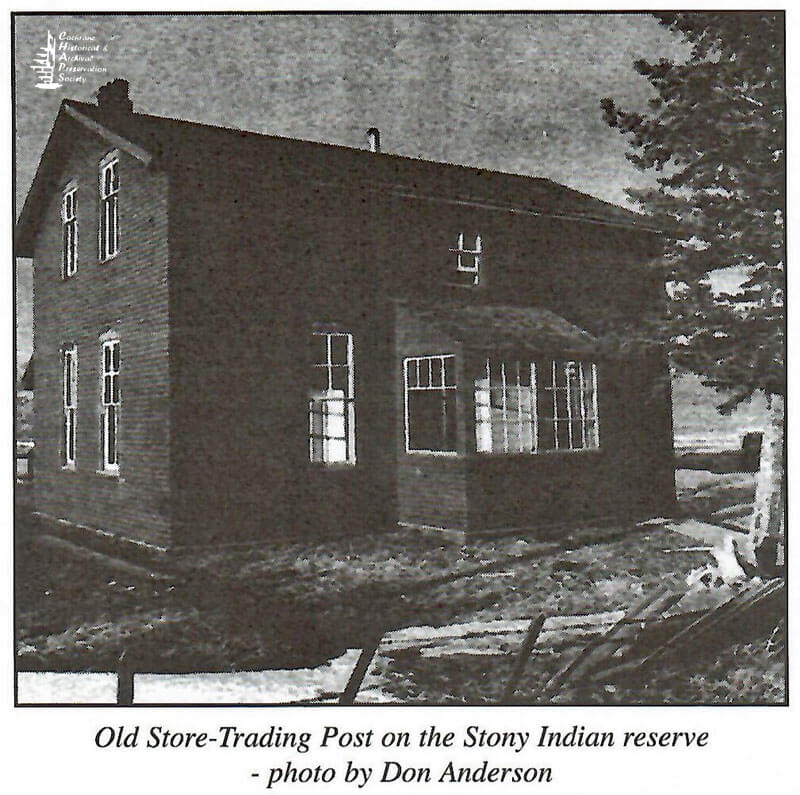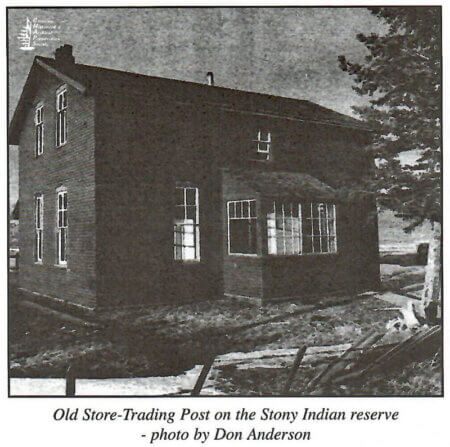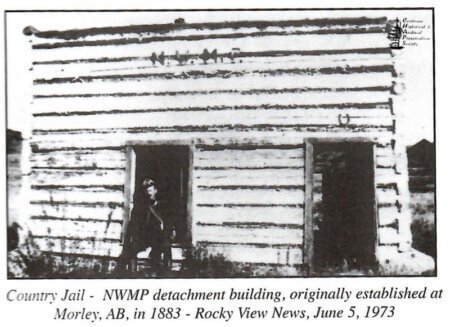by Jean L. Johnson Re-printed from Big Hill Country Pg 8 2009
The tract of land known as Morleyville Settlement lies along both sides of what is now 1A Highway, between the Ghost River on the east and the Stony (sic) Indian Reserve on the west. Its north boundary runs through the centre of Twp 26 Rge 6 W5M and extends one mile west of the range line. Before the official rectangular survey reached the area, Morleyville Settlement was laid out in long lots of different widths and acreages, all fronting on the Bow River. The Settlement was six miles wide and the lots, from west to east, were numbered 1A to 9, making ten in all.
In 1865 the Rev. George McDougall visited the Stony Indians on the Bow River, and in 1873, he and his son, the Rev. John McDougall, established a mission there, first, up on the hill beside the Hudson’s Bay Post but shortly after, on the flats just north of the Bow. Another son, David, opened a trading post and began setting up a ranch. With the McDougalls came their wives and families, their assistants and workers. Thus, a small village had gathered around the Mission a year before the N.W.M.P. started West. In 1875 Andrew Sibbald and his family came from Ontario and a school was built with Andrew Sibbald both builder and teacher. The McDougall ranching operation predated the arrival of the Cochrane Ranche herds by almost a decade, for John and David brought with them from Fort Edmonton a band of fifty horses and cattle. The following year they bought one hundred head of cattle in Montana.
In the early days, letters came addressed: Millward Post Office, Morleyville, Northwest Territories. The Millward Post Office was in David McDougall’s Trading Post and the Millward Cemetery was close by, just west of Jacob Creek. The name came from that of the Rev. George Millward McDougall, just as the name “Morley” is found in that of Dr. William Morley Punshon, President of the Conference of the Wesleyan Methodist Church of Canada.
The McDougalls were the founders of the Morleyville Settlement. Their long experience in the West, their creditable achievements and their boundless self-assurance inspired confidence in their relatives. and acquaintances. And so they were followed to Morleyville, not only by relatives, but by many from Cobourg, Ontario, where the McDougalls had attended college, and by people whom they met in Winnipeg on their trips to that town for supplies. Some of these took up land north of Morleyville Settlement although better land was available farther east.
The McDougalls had great influence among the Indians. Their intrepidity and physical prowess impressed the Stoneys who admired anyone who could equal them in their own pursuits. The Rev. John McDougall was largely responsible for the formation of the Stony (sic) Reserve. All the Stony (sic) Indians hunted along the eastern part of the Rocky Mountains and the foothills, but each of the three bands once had its own territory when the hunt was over. The Chiniki Band was on the Bow River, the Bearspaw Band was on the upper reaches of the Highwood River and the Kichipwot or Jacob Band (Wesley) claimed the Kootenay Plains on the North Saskatchewan. John McDougall brought the three bands together at Morley.
